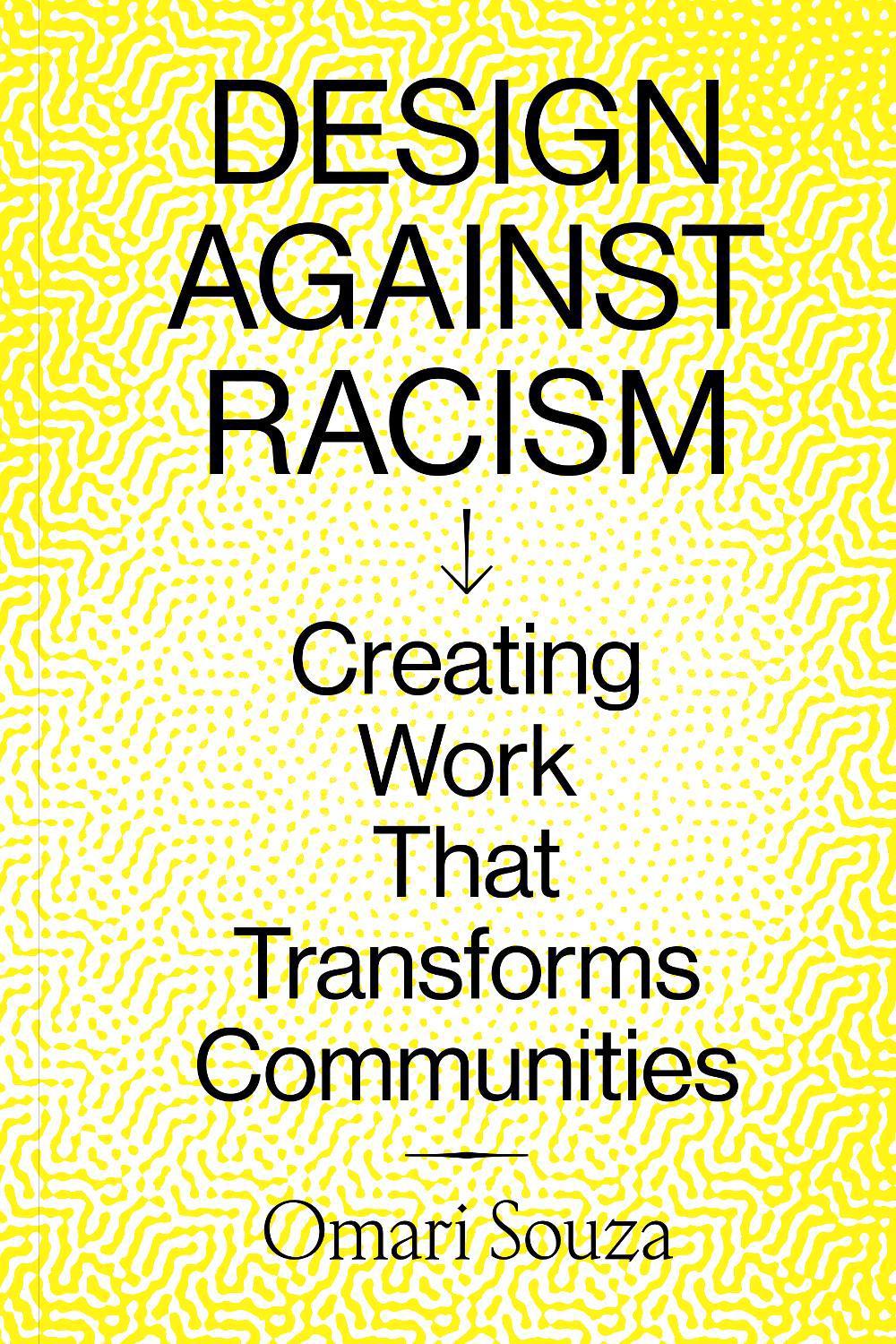
Design Against Racism
creating work that transforms communities
$45.60
- Paperback
256 pages
- Release Date
29 September 2025
Summary
Design Against Racism: A Restorative Justice Approach to Equity in Design
A historical and philosophical exploration of the impact of design on underserved communities, examining the field’s shortcomings as well as its potential to create positive change. Through essays that delve into history and practice, and case studies that demonstrate practical strategies, Design Against Racism explores how designers of all disciplines can address, through their work, the lega…
Book Details
| ISBN-13: | 9781797223582 |
|---|---|
| ISBN-10: | 1797223585 |
| Author: | Omari Souza |
| Publisher: | Chronicle Books |
| Imprint: | Chronicle Books |
| Format: | Paperback |
| Number of Pages: | 256 |
| Release Date: | 29 September 2025 |
| Weight: | 0g |
| Dimensions: | 229mm x 152mm |
You Can Find This Book In
What They're Saying
Critics Review
“As a designer and corporate leader, I believe our work shapes not just products, experiences, and spaces but also culture and society. Design Against Racism is an essential read for anyone committed to fostering inclusivity, belonging, and equity through design. Omari Souza challenges us to rethink the narratives we inherit, exposing the deep impact of Eurocentrism while offering restorative design as a path toward healing, truth, and empowerment. Through compelling essays and real-world case studies, this book makes a clear and timely case for design as a force for justice. If you’re passionate about using creativity to drive meaningful change, this book will both inspire and equip you to lead with intention and impact.”
—Brian Rice, senior vice president, chief design and brand experience officer, 3M Company
“Design Against Racism is the kind of book that makes you rethink everything you thought you knew about design (and communities). It’s not just about creating—it’s about repairing, empowering, and truly listening to communities that have been left out for too long. If you’re ready to use your skills to make a real difference, this book is your guide to designing with purpose and heart.”
—Sherry Huss, head of community, Freeman, and co-creator, Maker Faire
“Design Against Racism is a powerful and necessary read that unpacks how design has historically marginalized Black communities—and how it can be reclaimed as a tool for justice and liberation. It made me rethink how design shapes our lives, from social hierarchies to economic systems, often reinforcing inequalities that go unnoticed. What stands out most is the book’s emphasis on community-driven solutions, offering tangible ways to challenge exclusionary practices and reimagine design as a force for equity. This book isn’t just a critique—it presents a vision for a future where design actively uplifts rather than excludes. It’s a call to action for anyone who believes design should do more than just function—it should empower.”
—Alisha Padolsky, UX design lead, Fortune 500 company
“Design Against Racism is not only informative and fact-based but also liberates those who have been or are enduring. As a successful interior designer in Atlanta, I’ve been fortunate to experience incredible opportunities and serendipitous collaborations that have propelled my brand forward. Yet, I recognize that tradition and a lack of inclusion have often constrained my success in Georgia’s design industry. Despite being excluded from opportunities, awards, and platforms for daring to innovate, I remain deeply proud and grateful. True success isn’t measured by acceptance but by the integrity of one’s vision. Anything gained through authenticity and love holds immeasurable value—far greater than any barriers imposed by convention.”
—Monét Masters-Coats, principal, Forbes Masters
“Design Against Racism is a necessary and timeless resource that examines the historical relationship between design, racism, and inequality. Omari Souza’s work empowers designers and educators to challenge oppressive structures and build more equitable futures.”
—Sophia Little, designer and art director
“Design Against Racism challenges readers to expand the classic tripartite, analytical formula of ‘one part history, one part practice, one part case study’ to explore how and why design decision-making can challenge systemic inequities and foster inclusivity within marginalized communities. The stories offered here are part high-octane fuel and part expert field guides for designers, educators, and change makers interested in creating more socioculturally honest outcomes to design processes. By offering a range of authentic, experientially informed perspectives coupled with actionable strategies, Design Against Racism presents design as a means to create products, experiences, systems, and new ways of doing that positively shape social realities, counter biased narratives, and dismantle racial biases.”
—Michael R. Gibson, professor of communication design, University of North Texas
“Omari Souza takes us on a journey to understand the historical practices and perspectives of the colonial era that have shaped the modern design pedagogy while highlighting the undercurrent of resistance and reclaimed memory from marginalized and forgotten groups. He provides a framework from which contemporary designers can implement in their daily practice to be more inclusive in their approach to diversifying the discipline. A small shift in how we teach and practice design can create massive changes in a manner that restores and uplifts all.”
—Tracey L. Moore, design educator, Prairie View AM University
About The Author
Omari Souza
Omari Souza is a first-generation American of Jamaican descent who was raised in the Bronx, NY. He is an Assistant Professor of Communication Design at the University of North Texas and organizer of the State of Black Design conference. He received his BFA in Digital Media from the Cleveland Institute of Art and his MFA in Design from Kent State University.
Returns
This item is eligible for free returns within 30 days of delivery. See our returns policy for further details.




